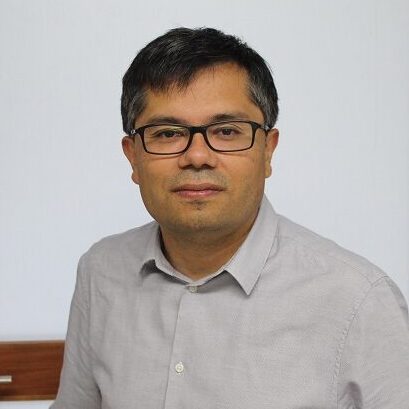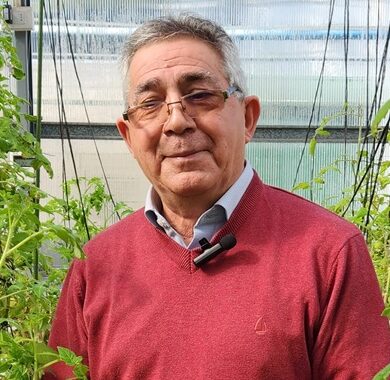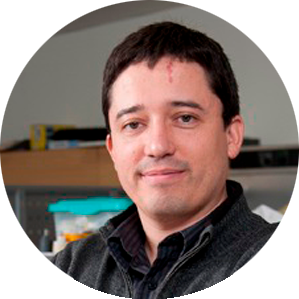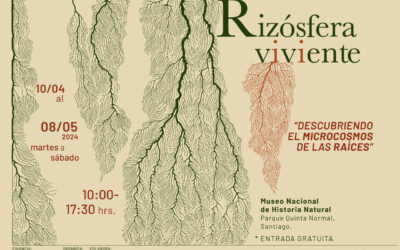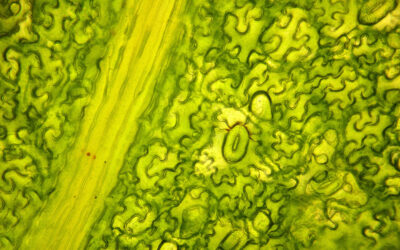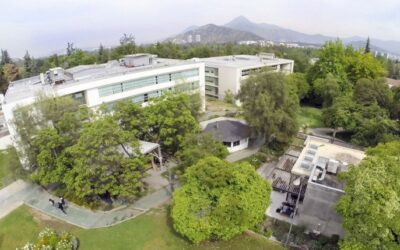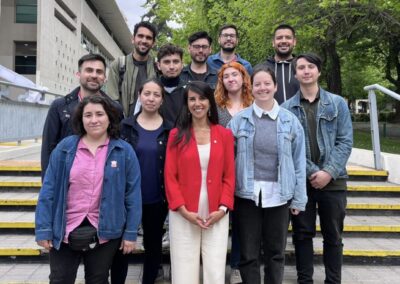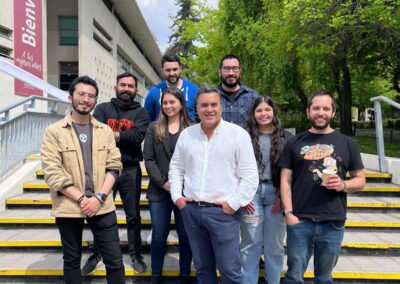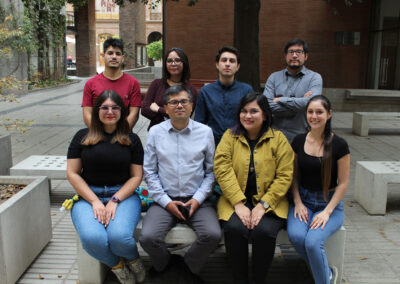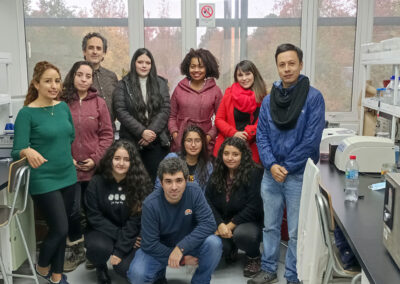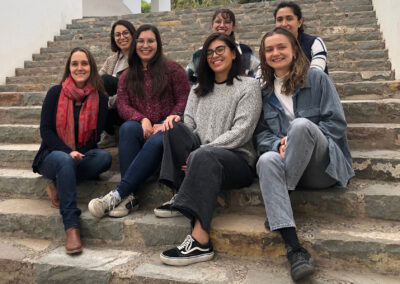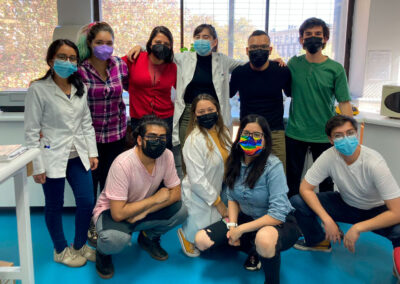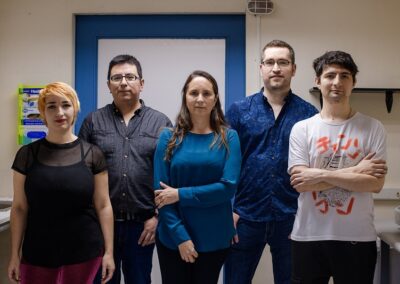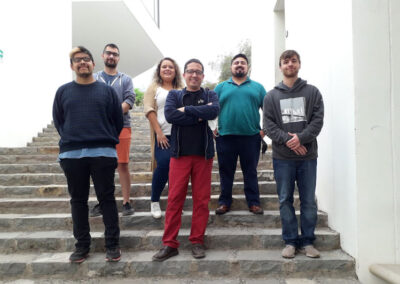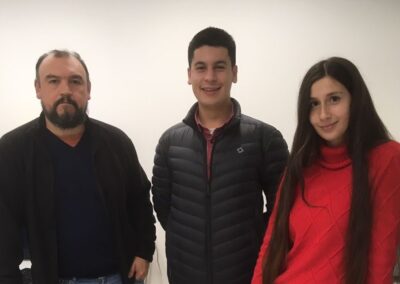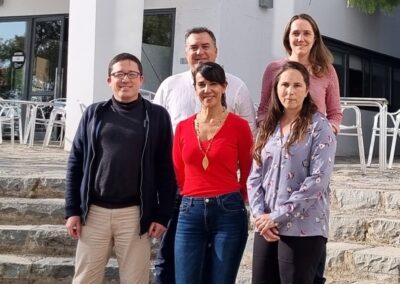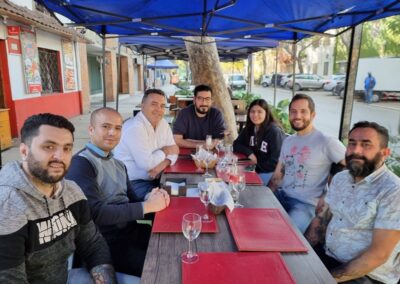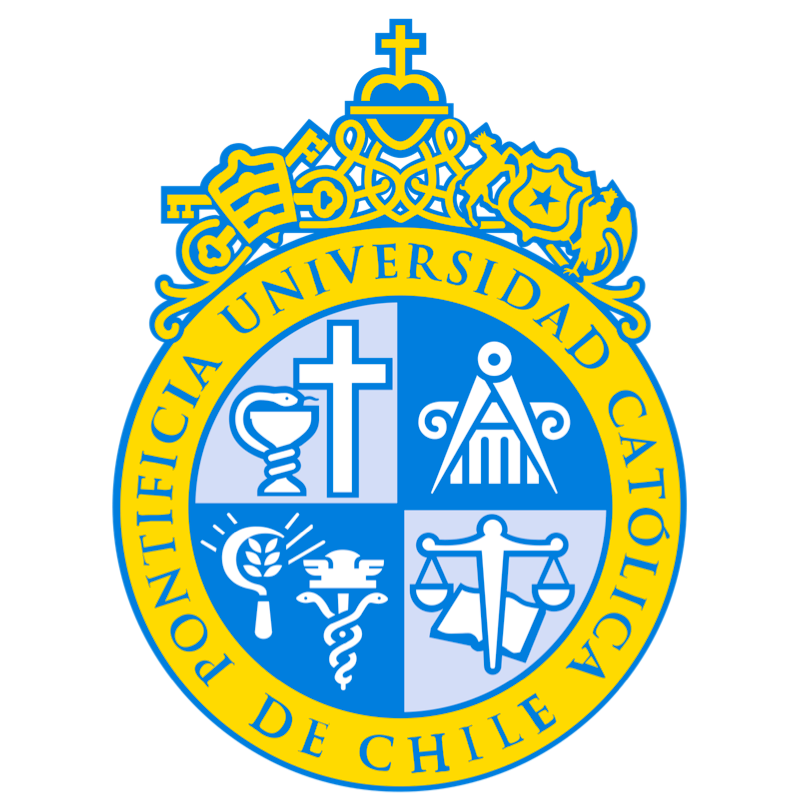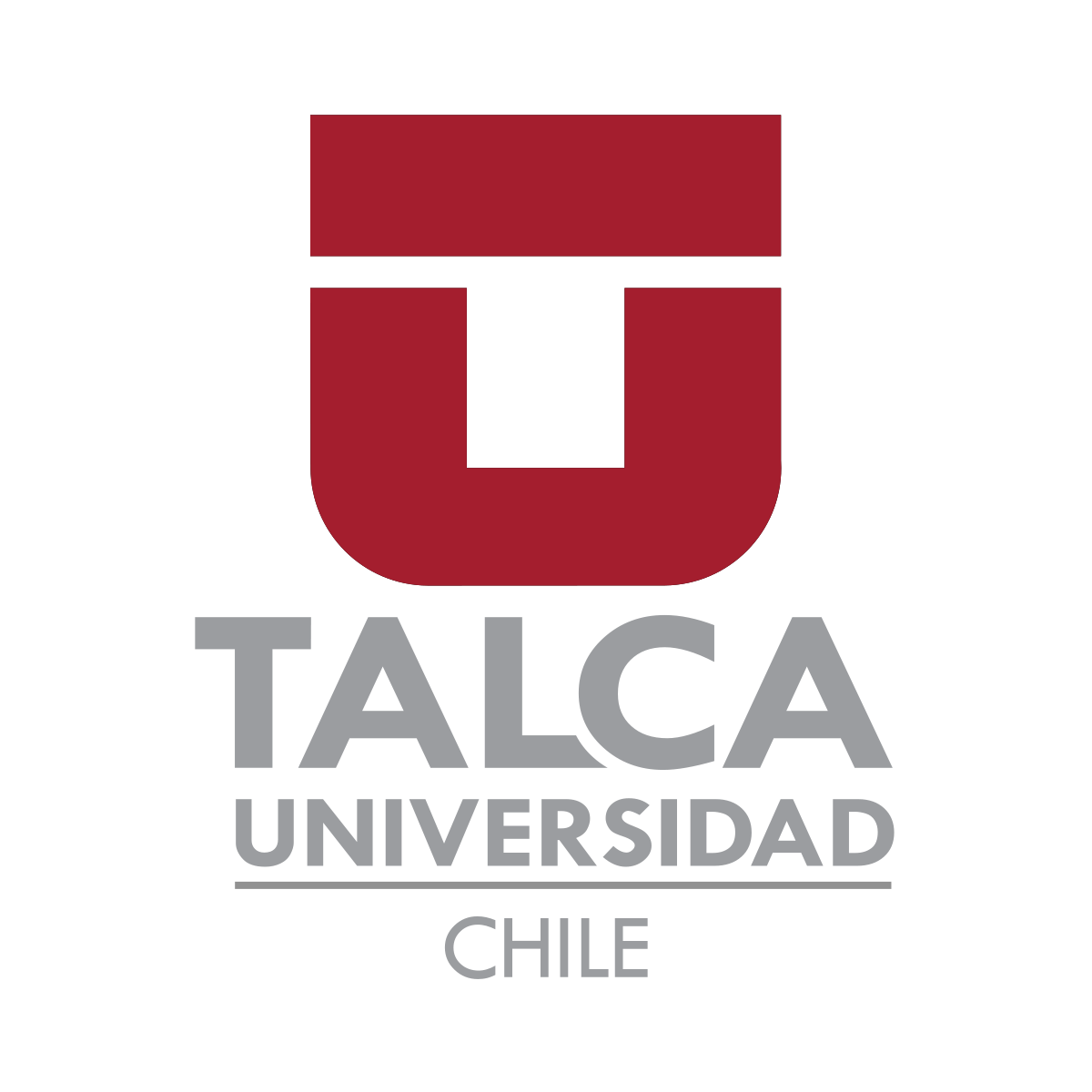ABOUT US
Problem we want to address:
Our society has an urgent need to develop innovative and sustainable solutions to feed a growing population in the context of global climate change (GCC) and land limitations. One of the main constraints for sustainable food production is nutrient availability, especially Nitrogen (N) and Phosphorus (P). While there is an unlimited resource for N in the atmosphere, the non-renewable nature of P resources (rock phosphate, Pi), demands changes in agricultural practices and especially the development of plants with improved Pi-acquisition and use efficiency to overcome the global Pi-deficit that is projected for the next 50 years.
Besides, agricultural systems often face different combinations of stress conditions (e.g. high-salinity, pest infestations, etc) as a consequence of the GCC. Hence, increased adaptability of crops and horticultural species is crucial to secure the growing demand for food production. One possibility to promote plant adaptation to these environmental challenges is the use of beneficial plant-associated microorganisms. Nevertheless, still limited knowledge of the molecular mechanisms underlying these interactions has hindered the possibility of using them as a sustainable and environmentally friendly solution in agriculture.
The Millennium Nucleus for the Development of Super Adaptable Plants (MN-SAP) will be a center of excellence in Plant Cell and Molecular Biology, Biotechnology and Plant Microbiology. Our main goal is to enhance plant productivity by improving Pi-uptake and translocation under different stressors and their combination. To achieve this, we propose to gather diverse approaches and synergistic team capabilities to produce fundamental knowledge. First, in the model plant Arabidopsis, and then transfer it to Tomato as a reliable model of fleshy fruit species. We propose to identify the most beneficial plant-microbe associations highlighting plant functions/genes to achieve enhanced Pi-uptake and translocation under these two stresses. Our long-term goal is to transfer knowledge from Arabidopsis and tomato (Micro-Tom) selected microbial communities to a fruit model plant by an integrative approach. We envision that the knowledge acquired in this project would be transferred in the future to breeders and growers to obtain super adaptable and highly resilient plants using a multidimensional perspective: using non-transgenic genome editing techniques, fast breeding techniques, and exploiting plant interactions with beneficial microorganisms. To the best of our knowledge, this approach has not been taken by any other millennium centers in Chile, as neither in Latin America.
MN-SAP team is composed of experts in plant root cell and molecular biology (Director José Estevez), soil microbiota, pathobiota, and insect interactions with plants (Alternate Director Dra. Francisca Blanco, and the Principal Researcher (PI) Dra. Josefina Poupin), plant genetics and omics-approaches (PI Dr. Claudio Meneses), plant physiology and productivity (PI Dr. Carlos Figueroa), and nutrient homeostasis in Plants (PI Andrea Vega and Ad. Ricardo Cabeza). Our MN-SAP team will have the support of three outstanding senior researchers (Dr. Ariel Orellana, Dr. Julio Salinas, and Dr. Bernardo Gonzalez) with a long trajectory in plant biology, plant stress, and microbiology, respectively. Our MN-SAP team has international recognition and has made significant discoveries in the fields of expertise covered in this proposal with the support of an excellent network of national and international well-known scientists and a Chilean agro-biotech company (SynergiaBIO). Finally, we have a very aspiring plan to develop the talent of new and young researchers as well as to positively impact our society and agriculture industry.
Our Team
ASSOCIATED RESEARCHERS
Francisca Blanco
Director
Claudio Meneses
Alternate Director
Carlos Figueroa
Associated Researcher
Simón Ruiz
Associated Researcher
Josefina Poupin
Associated Researcher
Andrea Vega
Associated Researcher
ADJUNCT RESEARCHERS
Ricardo Cabeza
Adjunct Researcher
Susana Saez
Adjunct Researcher
Thomas Ledger
Adjunct Researcher
José Estévez
Adjunct Researcher
SENIOR SUPPORTING COMMITTEE
Ariel Orellana
Senior Supporting
Bernardo González
Senior Supporting
Julio Salinas
Senior Supporting
ADMINISTRATION AND COMMUNICATIONS
Claudia Valdivia
Administration and Finance
RESEARCH AREAS
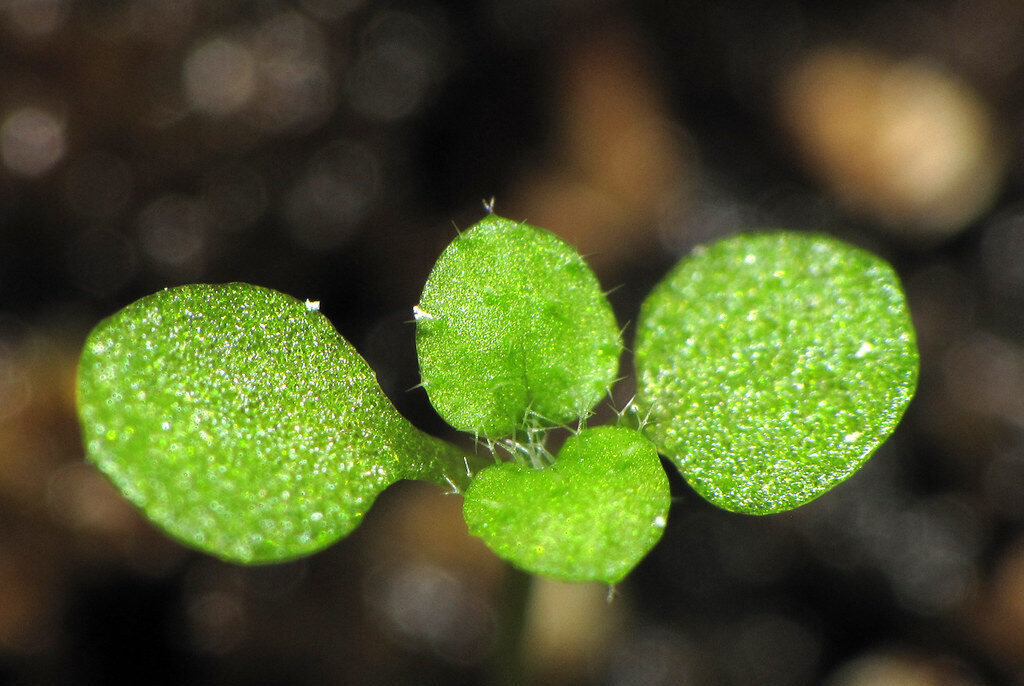
Research Line 1
We will use an unbiased approach (Genome-Wide Association Studies, GWAS) to identify genes regulating nutrient-sensing and uptake processes in plants. We will confront the plants to a combination of stresses: a) low-Pi (starvation condition), b) salt-stress (nutrient limiting factor), and c) pest-stress (Myzus persicae, an aphid model species that causes plant nutrient losses). Besides, we will reconstruct the underlying gene regulatory network associated with Pi acquisition and signaling in roots. This will allow us to understand the molecular basis of the plant response to low-Pi in more realistic scenarios, providing the foundations to generate plants better adapted to Pi-deficient soils in the presence of the tested stresses. Goal addressed by Dr. Estevez, Figueroa, Blanco, and Meneses.
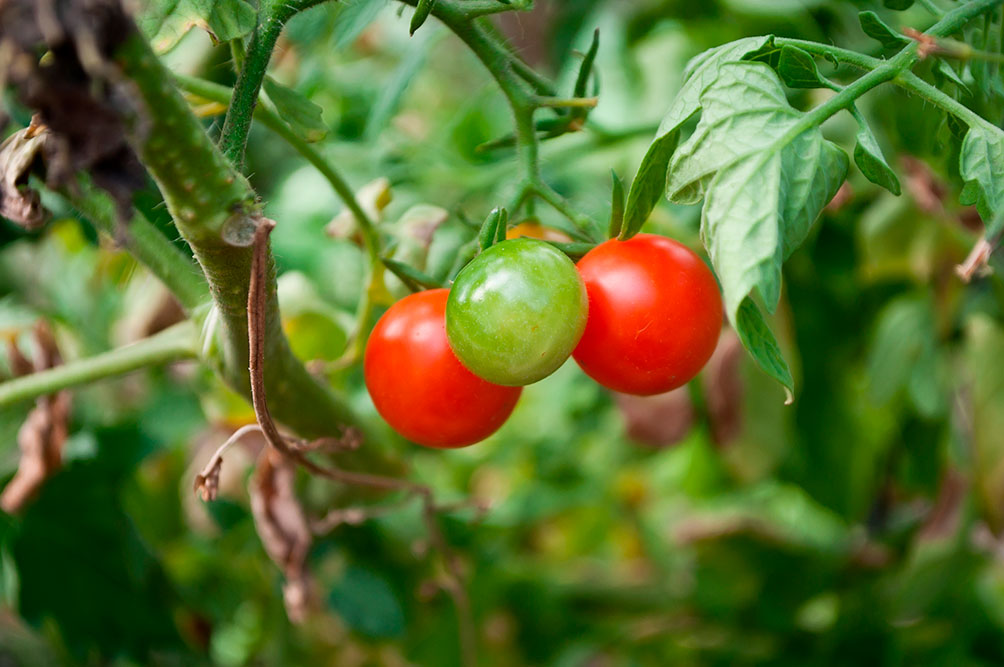
Research Line 2
A well-known capability of some soil microorganisms is that they can enhance plant nutrient acquisition. Different mechanisms have been proposed to explain the effects of such “biofertilizers” under laboratory conditions. However, their field application often leads to poor outcomes. In this goal, we propose identifying the most beneficial plant-microbe associations impacting tomato (Micro-Tom) Pi-acquisition in the context of abiotic/biotic stress. We will transfer the knowledge acquired from Arabidopsis (Goal 1) and use selected microbial communities in this fruit model by an integrative approach. Goal addressed by Dr. Estevez, Blanco, Poupin, Vega, Figueroa, Ruiz, and Meneses.
NEWS
Inédita muestra que fusiona arte y ciencia invita a conocer el vital rol del ecosistema de las plantas
La exhibición “Rizósfera Viviente”, creada por la artista nacional Andrea Errázuriz en colaboración el Núcleo Milenio para el Desarrollo de Plantas Super Adaptables, se puede visitar de martes a sábado y hasta el 8 de mayo en el Museo Nacional de Historia Natural, en...
Liderado por el Núcleo MN-SAP: Exposición que invita a reflexionar sobre los efectos del cambio climático se tomará el MNHN
¿Qué resulta de la mezcla poco común entre creación artística, ciencia, plantas que podrían absorber más nutrientes y la co-creación entre autor y espectador? La respuesta es “Rizósfera Viviente: descubriendo el microcosmos de las raíces”, una exposición que mezcla...
Con participación de investigadores MN-SAP: Se realizará una nueva versión del curso avanzado en Biología Molecular y Biotecnología Vegetal
Con el objetivo de presentar aspectos de la biología molecular y sus implicancias/desarrollos biotecnológicos en el área de la biología y la fisiología vegetal, entre el 13 y 18 de mayo de 2024, se realizará una nueva versión de un curso formativo dirigido a...
EVENTS
10 abril 2024 | Inauguración muestra “Rizósfera Viviente: descubriendo el microcosmos de las raíces”
A través de una obra original, creada por la artista nacional Andrea Errázuriz, esta iniciativa busca generar conciencia sobre los efectos del cambio climático y el rol de la ciencia en la búsqueda de soluciones para generar plantas con una mayor capacidad de...


